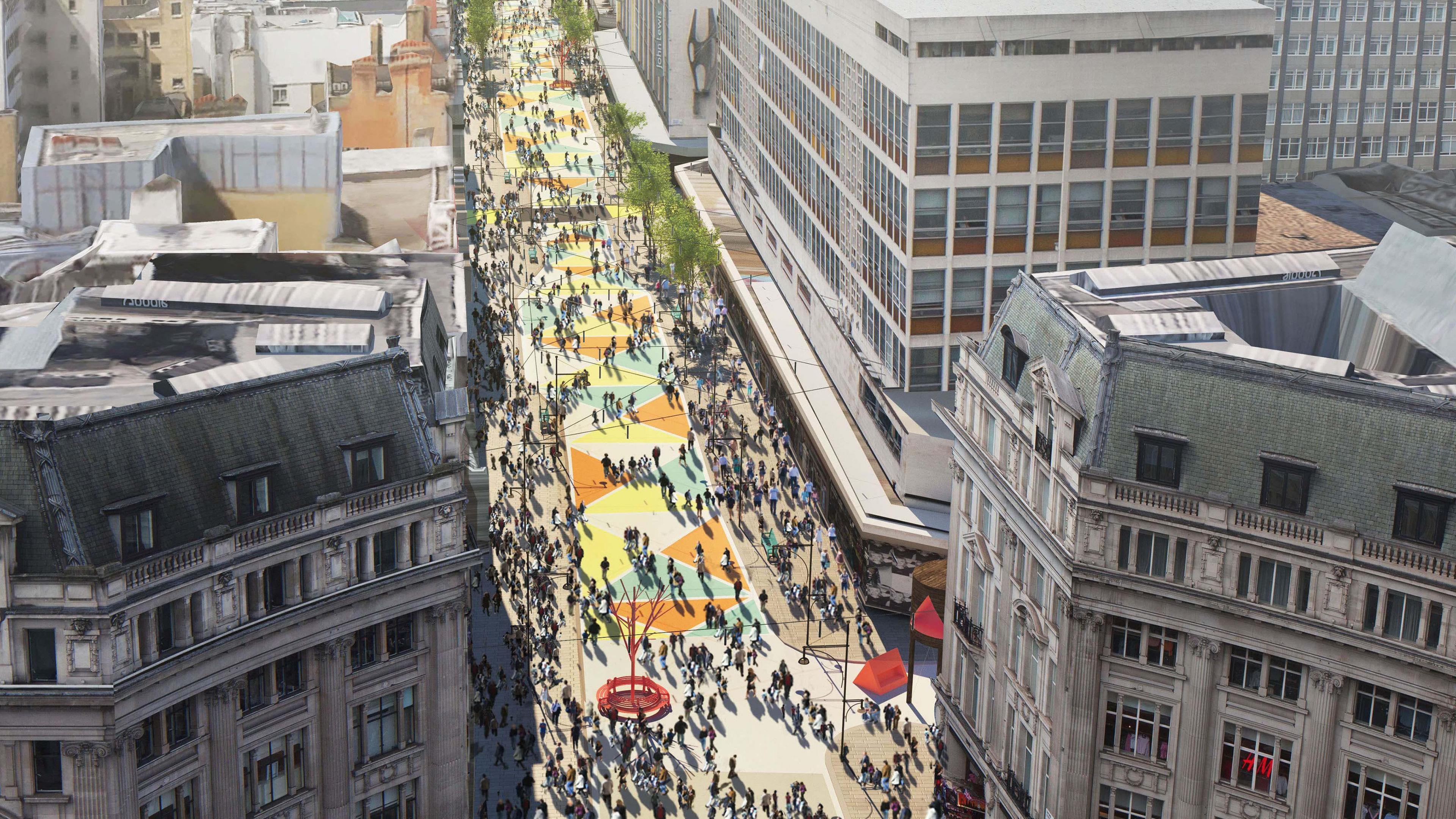Oxford Street's car-free day: All you need to know
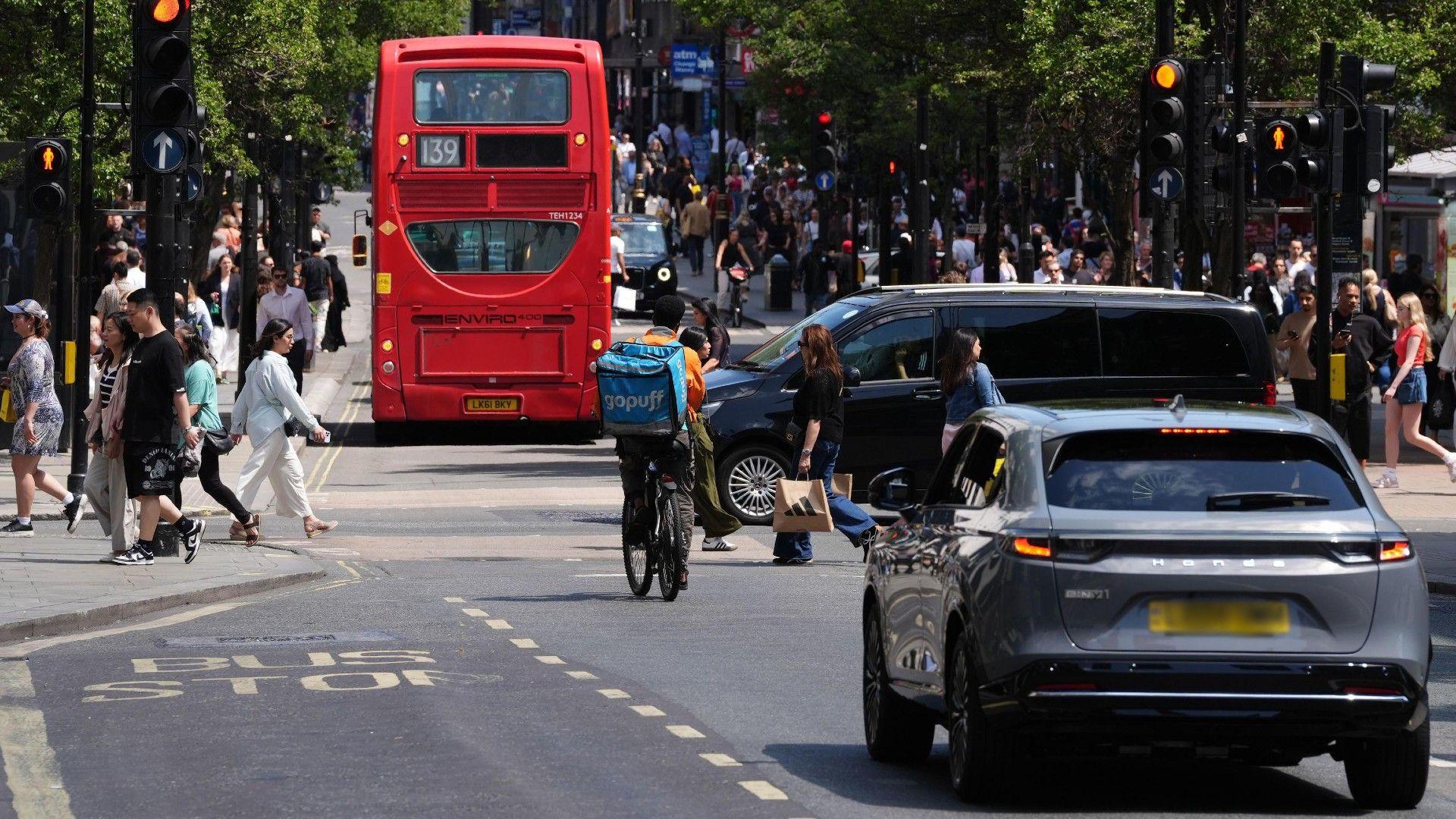
The event aims to show how Oxford Street could look if pedestrianised
- Published
Oxford Street will be closed to traffic for a car-free day and public event this Sunday.
City Hall says the event aims to "showcase the potential" of the mayor of London's plans to pedestrianise parts of Oxford Street.
The closure will affect the area between Orchard Street and Oxford Circus from 12:00 to 20:00 BST.
The mayor's future proposals include pedestrianising a wider stretch, between Marble Arch and Oxford Circus, with potential restrictions introduced further east towards Tottenham Court Road.
Here's what you need to know about the car-free day.
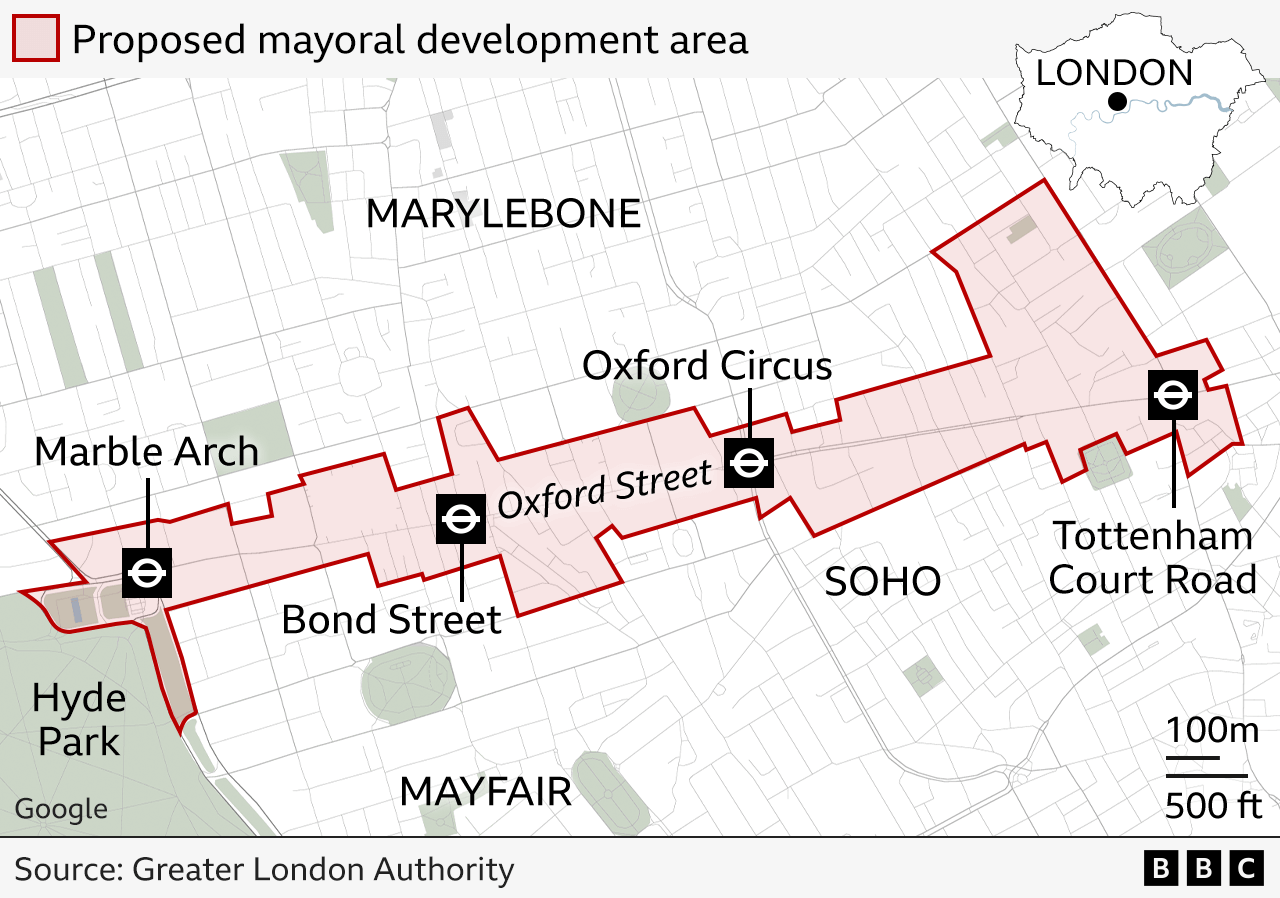
Permanent pedestrianisation plans involve a larger area than the temporary closures for Sunday's car-free day
What to expect
Live music and performances throughout the day, external on two stages outside
Food and drink stalls
Pop-up shops "celebrating Oxford Street's global fashion and retail identity"
Charity and community-led zones plus wellness area
Exhibition of Oxford Street's history via photos and stories
Exhibition of the mayor's pedestrianisation plans
Accessing the event
Unsurprisingly, people are being asked not to travel to the event in a car. Visitors are recommend to arrive by Tube, bus, or on foot.
The nearest Tube stations are Oxford Circus, Bond Street, Marble Arch and Tottenham Court Road.
There will be road closures in the surrounding area, external from 21:00 on Saturday until 04:00 on Monday.
Transport for London (TfL) advises that there will be some changes to bus routes, and to check before travelling, external.
Visitors will be forbidden from riding cycles and e-scooters through the event space, and must dismount to cross through.
Why is it happening?
Sir Sadiq Khan resurrected plans to ban traffic from parts of the world-famous shopping street last year.
His previous attempt in 2018 was blocked by the then-Conservative local authority.
The Labour mayor has said "urgent action is needed" to boost the area and the new plans would deliver a "world-class, accessible, clean avenue".
In June, Sir Sadiq said the latest plans would move forward "as quickly as possible".
The announcement followed a consultation that found that two thirds of people supported the principle of banning traffic on the street, which sees an average of half a million visitors each day.
This Sunday's event aims to demonstrate how pedestrianisation could work.
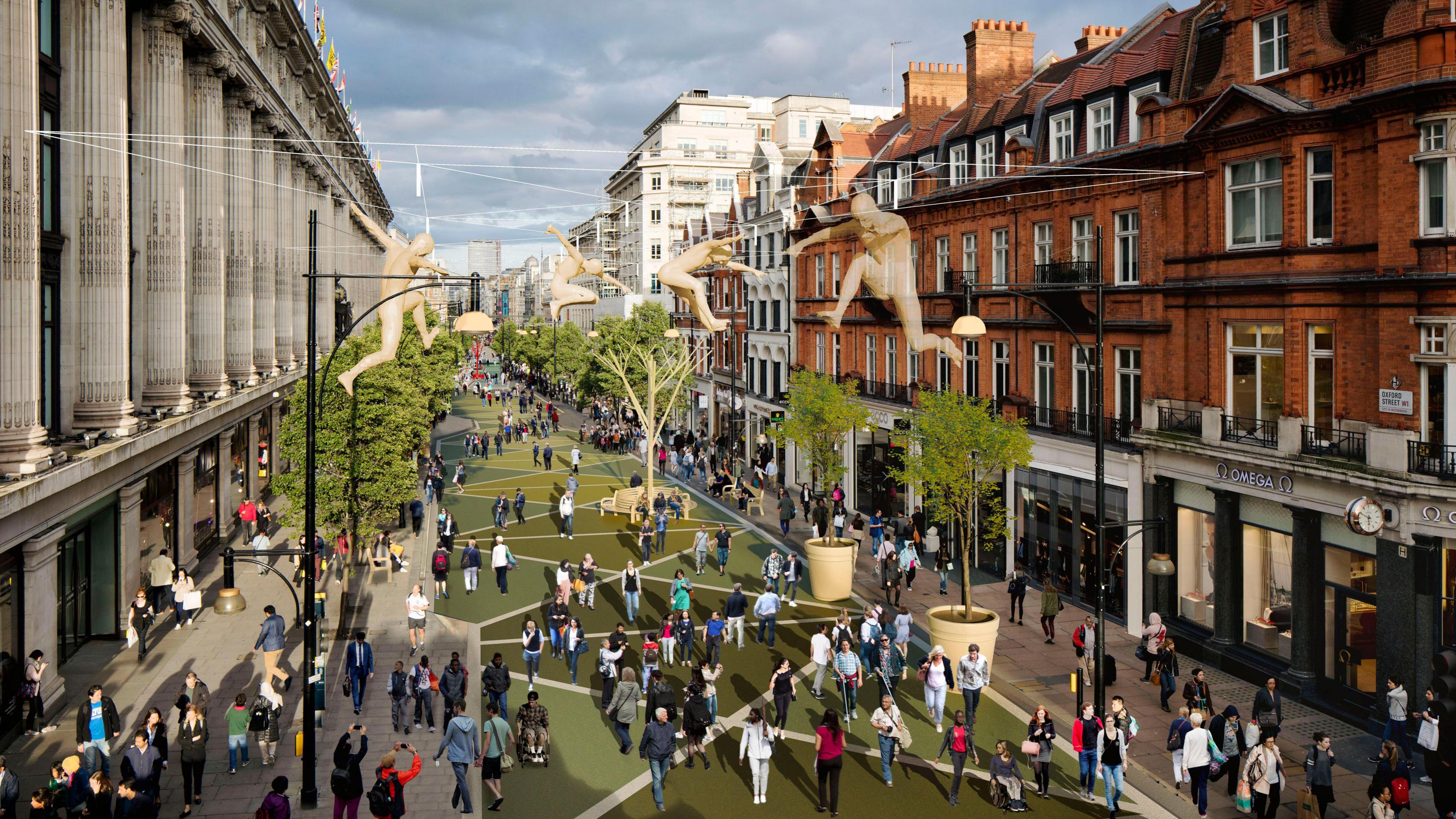
The mayor's future plans involve the diversion of bus routes that use Oxford Street
Sir Sadiq Khan said: "This is a fantastic opportunity to see Oxford Street in a whole new light – traffic-free, full of music, great food, pop-ups and entertainment for everyone.
"As mayor, I'm determined to unlock Oxford Street's true potential and deliver a world-class, accessible, clean avenue."
Is everyone in favour of pedestrianisation?
Some concerns have been aired over the plans from politicians and also taxi groups.
Karen Proctor, chair of the United Cabbies Group, said pedestrianisation risked "trading a perceived short-term aesthetic gain for long-term urban dysfunction".
Detailed traffic plans for pedestrianisation will be consulted on later in the year.
What are the next steps?
The mayor has said he intends to make the project happen through a rarely-used power to create a mayoral development corporation (MDC).
The London Assembly has accepted his proposal for a Mayoral Development Area (MDA) and to establish an MDC to drive the regeneration of Oxford Street.
Sir Sadiq has written to the secretary of state to notify her of the designation of the Oxford Street MDA and to request that the establishment of an MDC to be formally established on 1 January 2026, external.
Once established, the mayor will appoint the MDC's board and it will usurp the planning powers of the local authorities - mainly Westminster.
Listen to the best of BBC Radio London on Sounds and follow BBC London on Facebook, external, X, external and Instagram, external. Send your story ideas to hello.bbclondon@bbc.co.uk, external
- Published19 September
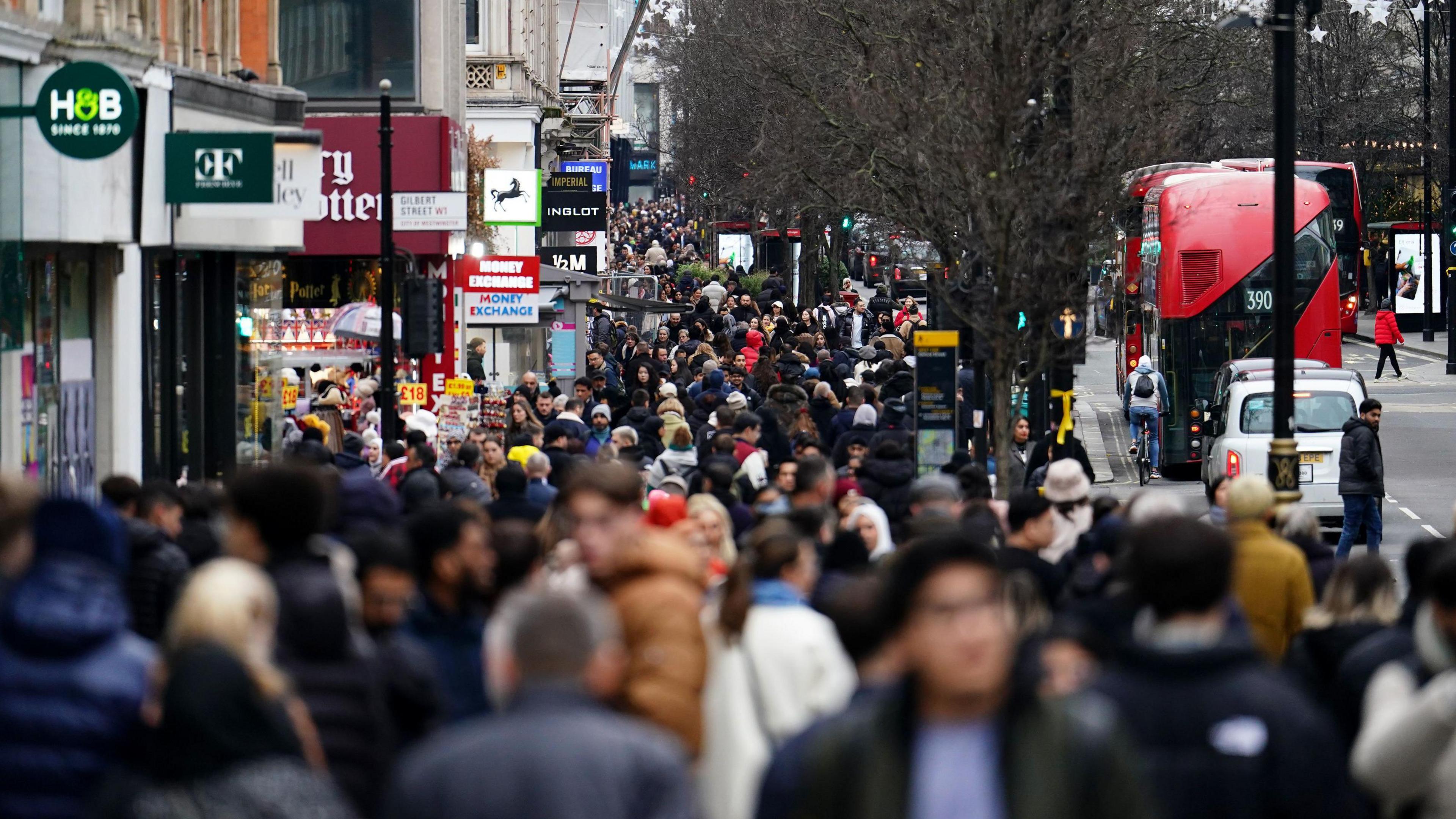
- Published11 September
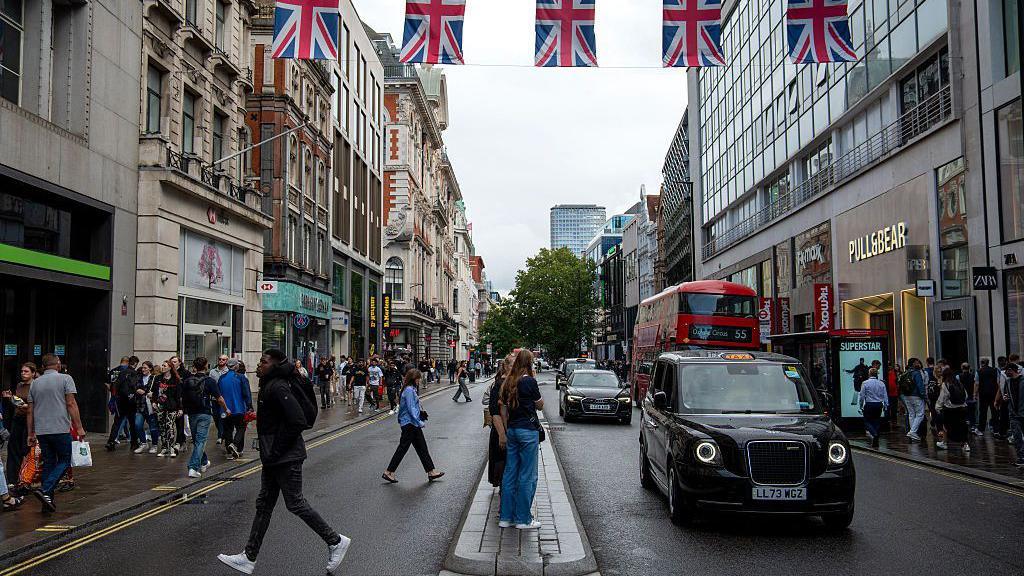
- Published31 August
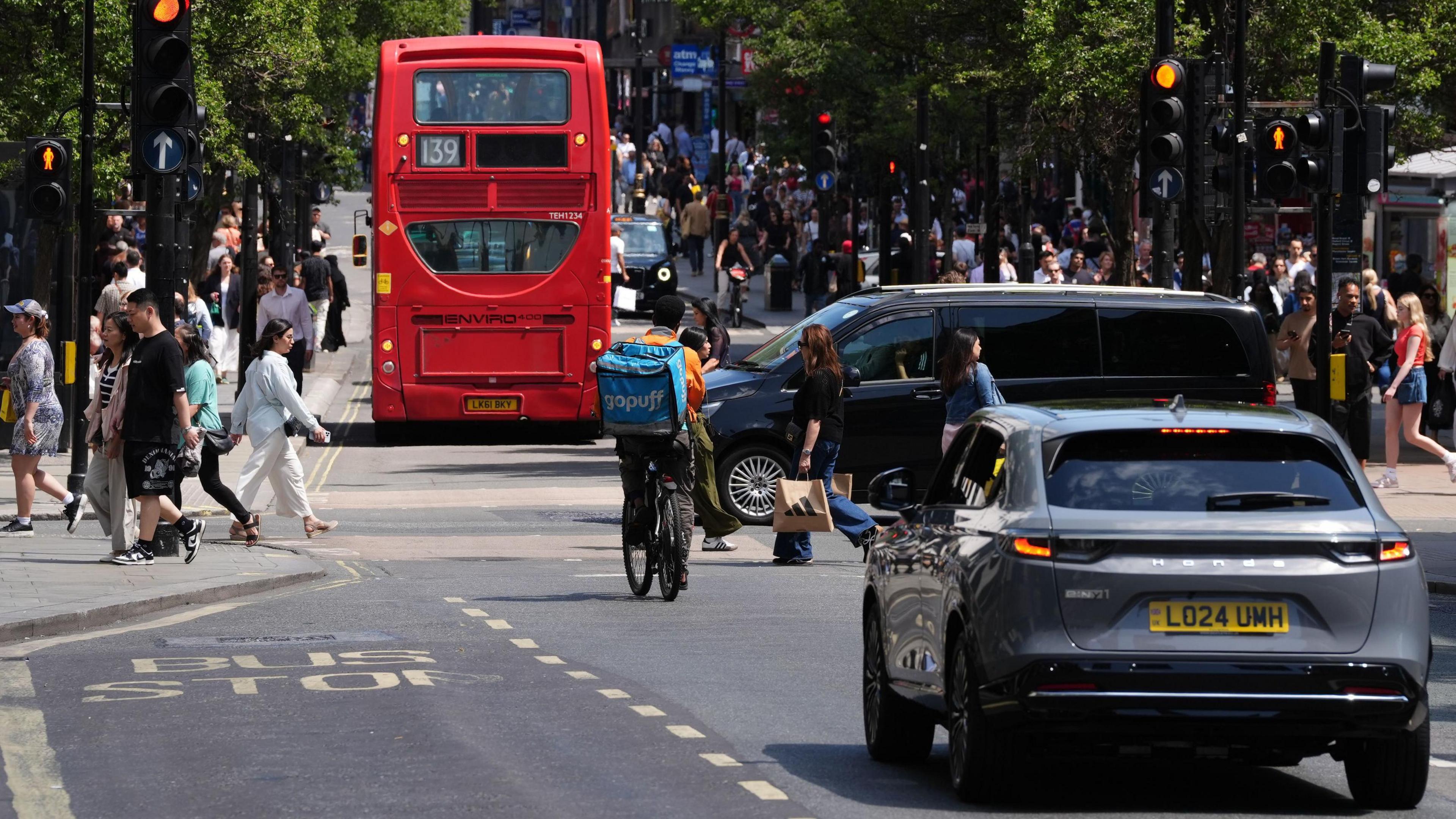
- Published23 April
